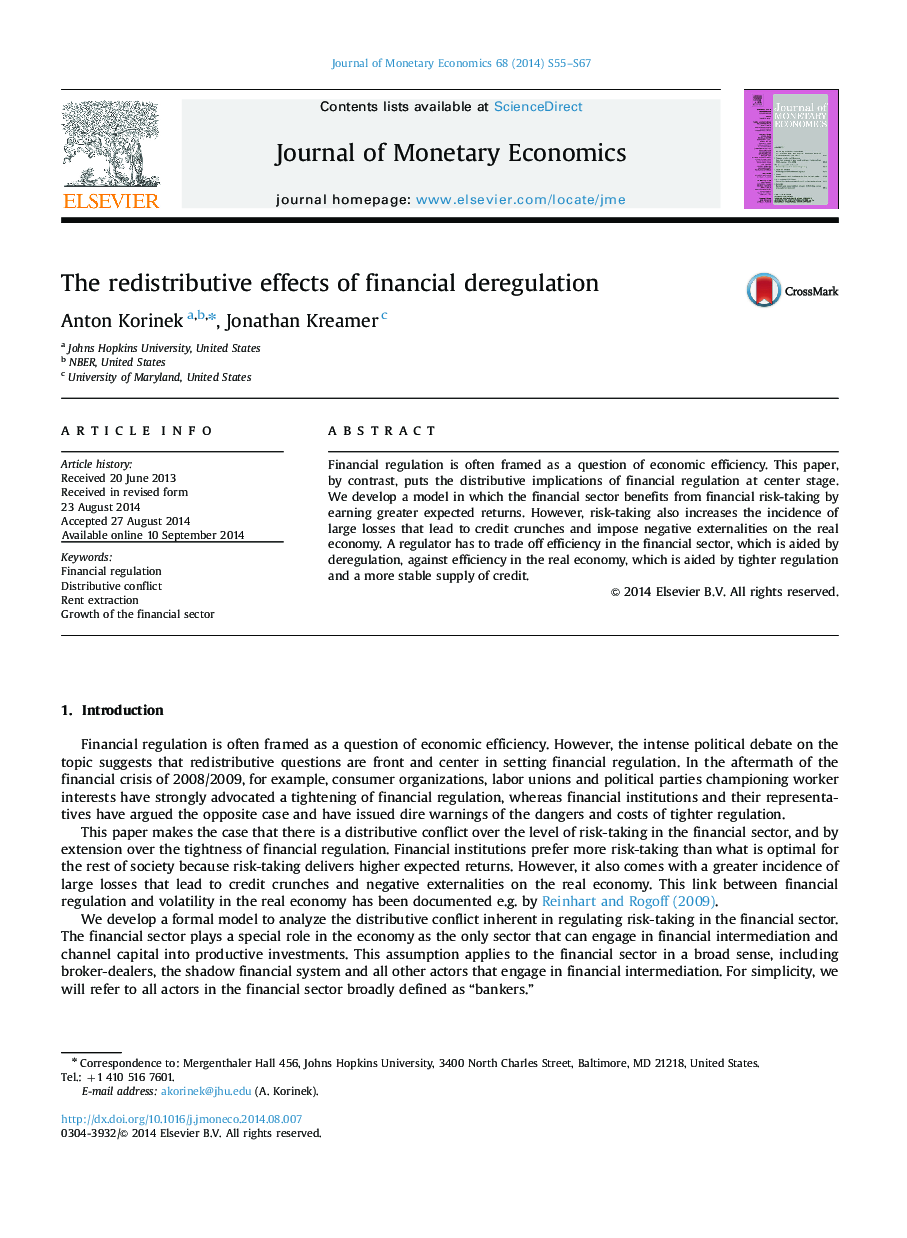| Article ID | Journal | Published Year | Pages | File Type |
|---|---|---|---|---|
| 966861 | Journal of Monetary Economics | 2014 | 13 Pages |
Abstract
Financial regulation is often framed as a question of economic efficiency. This paper, by contrast, puts the distributive implications of financial regulation at center stage. We develop a model in which the financial sector benefits from financial risk-taking by earning greater expected returns. However, risk-taking also increases the incidence of large losses that lead to credit crunches and impose negative externalities on the real economy. A regulator has to trade off efficiency in the financial sector, which is aided by deregulation, against efficiency in the real economy, which is aided by tighter regulation and a more stable supply of credit.
Related Topics
Social Sciences and Humanities
Economics, Econometrics and Finance
Economics and Econometrics
Authors
Anton Korinek, Jonathan Kreamer,
